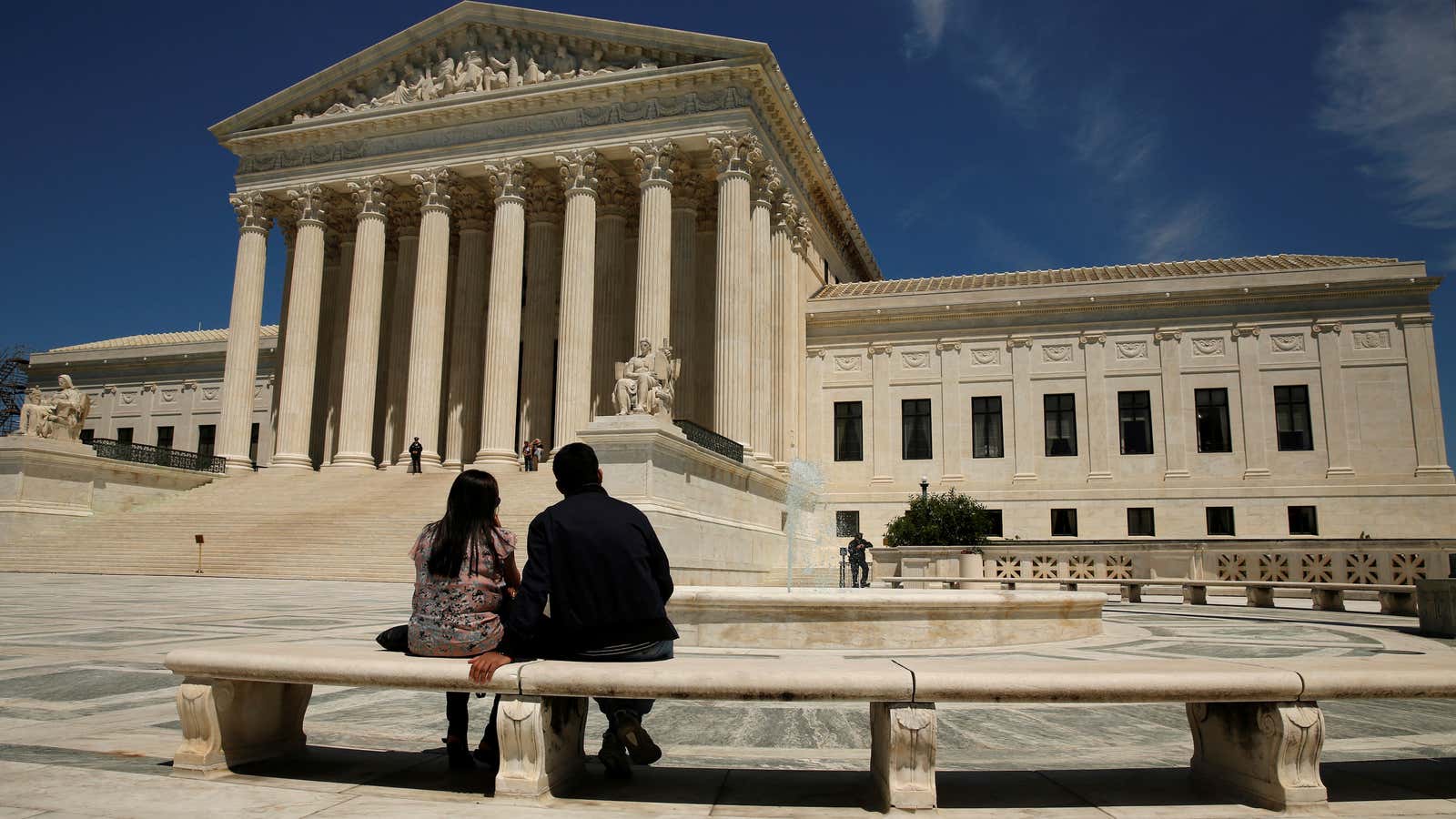It’s not uncommon for the US Supreme Court to end its nine-month term with its most anticipated decisions. The suspense is particularly thick this time around, though.
In the coming week and a half, the court is due to rule on three major cases (all coming out of Texas, weirdly) that hit on some of the greatest tensions in America right now. Adding to the drama: the recent death of Justice Antonin Scalia has left the eight justices evenly split along conservative and liberal lines, meaning the breadth and content of the rulings are nearly impossible to predict.
This week could also add significant weight to the next term. As soon as Monday, the justices will decide whether to hear a case on assault weapons bans in Connecticut and New York—a divisive topic made more so by last weekend’s mass shooting in Orlando. The court hasn’t decided a gun control case since 2010.
Here are the most high-profile issues left on the court’s docket for the current term:
Abortion
A Texas law passed in 2013 slapped a huge list of regulations on abortion providers, essentially making it tougher for them to stay open. The constitutionality of that law is now being questioned in Whole Women’s Health v. Hellerstedt. Legal experts are divided over whether the court will uphold the Texas law or strike it down—but in any case, it’s already been declared the most important ruling about reproductive rights since Roe v. Wade in 1973.
Affirmative action
Abigail Fisher, a white woman, claims she was rejected from the University of Texas because the school’s race-conscious admissions policies unfairly helped minority applicants and discriminated against her. Her case, Fisher v. University of Texas II (the II because the case has bounced back and forth between courts since 2012), is being heard at a time when colleges across the country are undergoing racial turmoil.
It’s probable the court will issue a narrow ruling that applies to the University of Texas admissions system alone. But if the ruling turns out to be broader, public and private universities across the US may need to radically change the way they consider and admit students.
Immigration
Two years ago, president Barack Obama bypassed Congress to introduce a massive immigration reform plan; under his Deferred Action for Parents of Americans program, millions of qualifying undocumented immigrants can find work and defer deportation. Now, a group of 26 states—led by Texas—is arguing that Obama exceeded his constitutional powers with the plan.
Because the expected ruling coincides with a presidential race in which immigration has been harped on again and again as a policy issue, the outcome of this particular case may be the most hotly debated.
